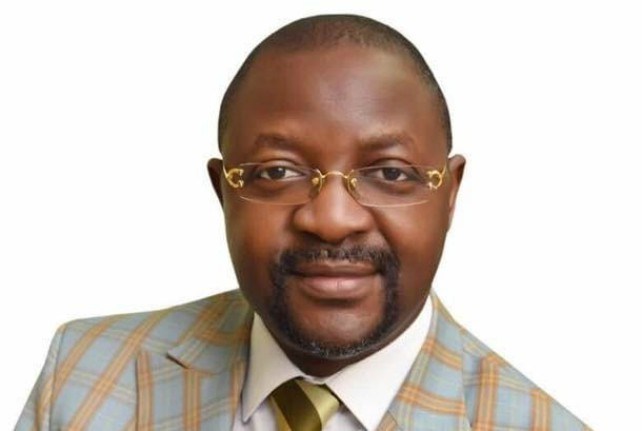News
Youths need digital skills for 21st century economy – Minister

The Minister of Youths and Sports Development, Mr Sunday Dare, on Tuesday said African youths need digital skills development for the 21st century economy.
Dare said this in a webinar monitored in Abuja and hosted by the UN Educational, Scientific and Cultural Organisation (UNESCO).
The webinar focused on ‘Youth Power in Combating Mis and Dis-Information during the COVID-19 pandemic and beyond’.
The meeting also reiterated the need for the deployment of the Media and Information Literacy (MIL) framework launched by UNESCO in 2011.
The sports minister said that COVID-19 had unleashed the potential and creative minds of youths which leverages on technology, adding “technology should be harnessed and used for positive purposes more than the negatives”.
“In Nigeria, we discovered that there are digital skills gap and our youths need digital skills for the 21st century economy.
“There are over 200 digital skills but for Africa’s criticality, we identified 15 to 25 skills that our youths need to position them to be effective for digital economy,” Dare said.
The minister said that the country developed Digital Skills Literacy, Entrepreneurship, Employable and Leadership (DEEL) programme as an action plan to help upskill the youths.
Dare said the programme is targeted at improving the skills of 500,000 to one million youths in the next two years so that they could adapt to technology and solve problems in various sectors of the economy.
He stated that the country is into collaborations with IBM and International Telecommunications Unit, among other institutions, leveraging on technology for development.
He, however, said that the COVID-19 pandemic had presented policy makers, countries with the opportunity to acknowledge and leverage the potentials of the youths.
Mr Yao Ydo, the Regional Director of UNESCO, said that with the emergence of the COVID-19 pandemic, people resorted to online platforms to seek information and answers.
Ydo said unfortunately, some information available on social media platforms were not credible and could mislead the public.
According to him, Africa is gaining prominence in the internet space and countries need to employ the provisions of the MIL framework that recognises the functions of the media in disseminating information.
He said the MIL project promoted media literacy skills and ensures best practices in analysing information.
He added that in response to infodemic caused by the pandemic, UNESCO Abuja launched a survey on the Perception of COVID-19 Communication in West Africa and also engaged youths by calling for jingles.
Ydo said that with the development in digital communication, the youths had roles to play in combating disinformation and misinformation.
He hoped that the meeting would harness the power of the youths on digital technology, innovation for transformation of the African society and human development.
The director also called for the improvement of the current media landscape as regards COVID-19 information, media ambassadors on media literacy and youth forum that focuses on their perspectives and challenges.
Mr Mohammed Bangura, the Minister of Youth Affairs, Sierra Leone, said African countries should deploy the power in the huge young population for creativity and innovation.
“Accumulation of knowledge is an asset in young people and if well used, leads to revolution.
“Young people should be seen as assets and not liabilities, also as progressives, not set of people that disrupts,” Bangura said.
Dr Carolyn Wilson, Lecturer, Western University, Canada, said MIL framework would provide the media and journalists the ability to evaluate information and its sources.
Wilson said the framework focused on news production, messages conveyed and targeted audience, adding that MIL have core principles which should be considered in information sharing using digital technology.
Presentation of the survey results on the Perception of COVID-19 Communication in West Africa was done in the meeting.
According to Mr Macaulay Olushola, National Programme Officer on Information Communication, the survey was done between April 28 and May 10.
Olushola said that the survey focused on eight countries which include Benin, Cote d’Ivoire, Guinea, Ghana, Liberia, Nigeria, Sierra Leone and Togo with 522 surveyed respondents.
He said the respondents were assessed using Google Forms based on likely questions asked in the COVID-19 era sources of information, among other criteria.
On the call for Jingles on Mis and Dis-Information, Olushola said they got over 40 entries, while the best 15 were selected.




 Davido's Net Worth & Lifestyle
Davido's Net Worth & Lifestyle 
